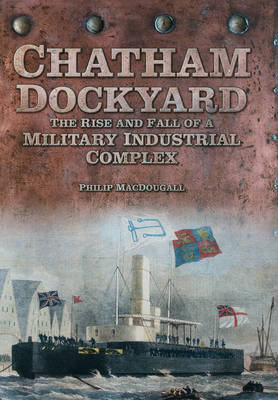
- Afhalen na 1 uur in een winkel met voorraad
- Gratis thuislevering in België vanaf € 30
- Ruim aanbod met 7 miljoen producten
- Afhalen na 1 uur in een winkel met voorraad
- Gratis thuislevering in België vanaf € 30
- Ruim aanbod met 7 miljoen producten
Zoeken
Chatham Dockyard
The Rise and Fall of a Military Industrial Complex
Philip Macdougall
Hardcover | Engels
€ 28,45
+ 56 punten
Omschrijving
Founded in 1570, Chatham Dockyard quickly became one of the most important naval yards for the repair and building of warships, maintaining a pre-eminent position for the next 400 years. Located on the River Medway, in all, the yard was responsible for the construction of over 500 warships, these ranging from simple naval pinnaces through to first-rates that fought at Trafalgar, and concluding with the hunter-killer submarines of the nuclear age. In this detailed new history of the yard from experienced local and maritime author Philip MacDougall, particular attention is given to the final two hundred years of the yard's history, the artisans and labourers who worked there and the changing methods used in the construction of some of the finest warships to enter naval service. Coinciding with the dockyard's seeking status as a World Heritage site, this fascinating history places Chatham firmly in its overall historical context.
Specificaties
Betrokkenen
- Auteur(s):
- Uitgeverij:
Inhoud
- Aantal bladzijden:
- 192
- Taal:
- Engels
Eigenschappen
- Productcode (EAN):
- 9780752462127
- Verschijningsdatum:
- 1/06/2012
- Uitvoering:
- Hardcover
- Formaat:
- Genaaid
- Afmetingen:
- 160 mm x 236 mm
- Gewicht:
- 544 g

Alleen bij Standaard Boekhandel
+ 56 punten op je klantenkaart van Standaard Boekhandel
Beoordelingen
We publiceren alleen reviews die voldoen aan de voorwaarden voor reviews. Bekijk onze voorwaarden voor reviews.











